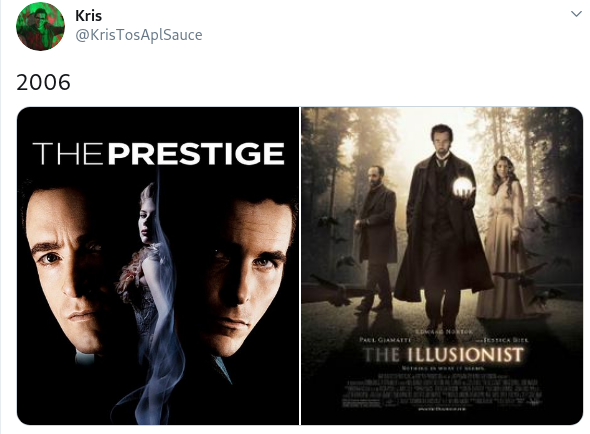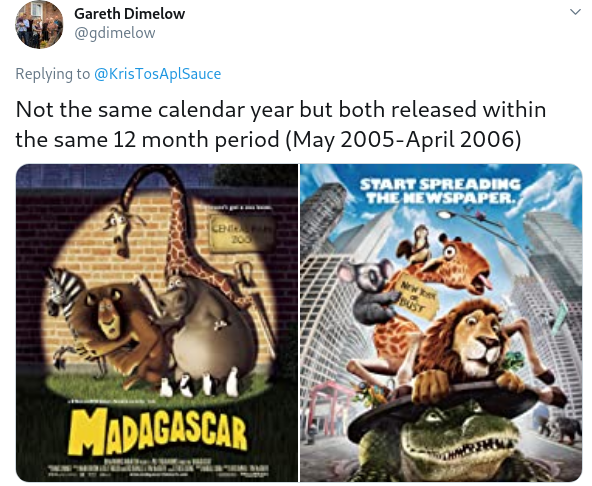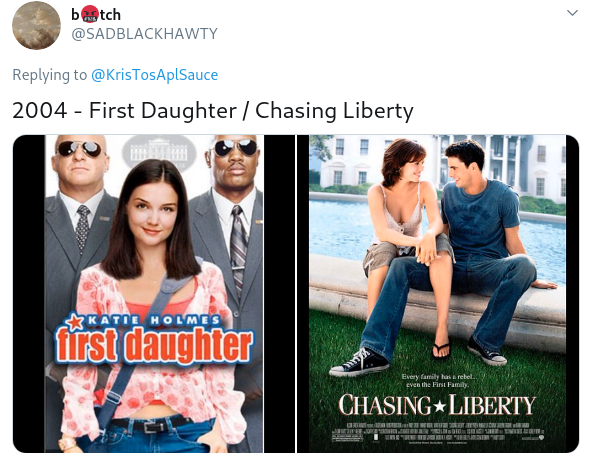The Cheap and Dirty Reason Why Hollywood Makes Two of the Same Movie Every Year
Updated April 14 2020, 9:19 a.m. ET
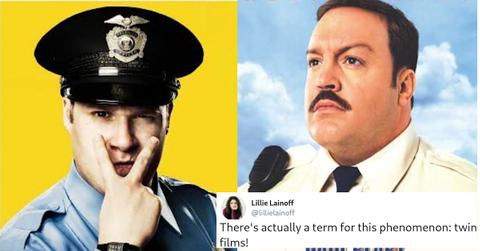
It's no secret that Hollywood's producing less diverse live-action feature films. A lot of that can be directly attributed to major media consolidations. In 2020, five major companies own the majority of studios making big budget films in the US: Disney, Universal, Warner Bros., Paramount, and Columbia. That number will probably go down as the years progress.
I'd also remind you that Hollywood has a long and storied tradition of being unoriginal, crooked, and absolutely risk-averse. While there are plenty of examples that could be selected to support this thesis, everyone will immediately recognize one glaring phenomenon: when two movies with nearly identical premises are released in the same year.
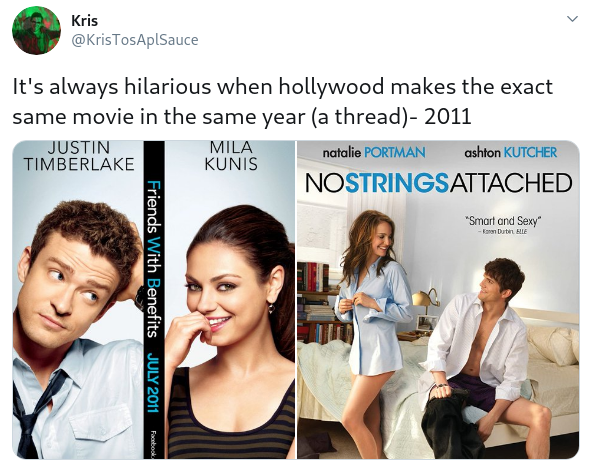
It's called "twin films," and it happens at least once a year.
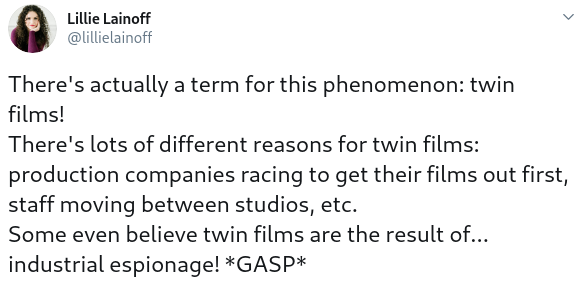
What's most mind-boggling about the twin film phenomenon is that the premises, in many instances, are so specific and unique it's crazy. We're not just talking about films decades apart that are ridiculously similar, like Kramer vs. Kramer and A Marriage Story, or Roma and watching paint dry; they often come out within months of each other.
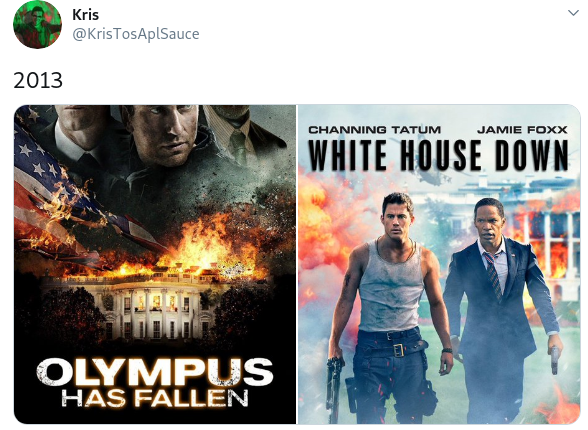
We aren't even just talking about general film genres here: like crime flicks or westerns, it gets as granular as "Mall Cop Comedy." The first Paul Blart movie came out just a few months before Seth Rogen's Observe and Report.
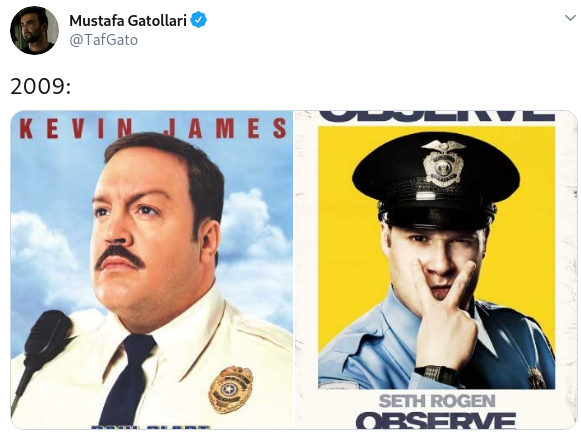
A Quiet Place and Bird Box were basically the same premise with different senses — sound vs. sight — at the fore.
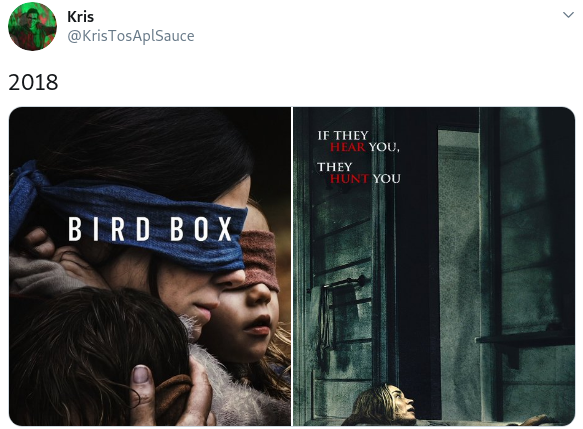
Different people offered up varying theories as to why this happens, and it seems like any of them could be true. Sometimes the posters for these movies even look the same.
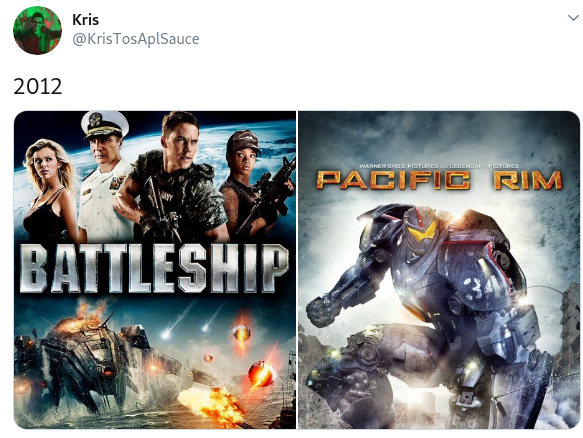
Lillie Lainoff offered up that in many instances production studios are racing each other to get their movies in theaters before the competition. Sometimes, this results in straight-up cheap knock-offs getting produced in an effort to capitalize on the buzz of a major studio release that has big names attached to it.
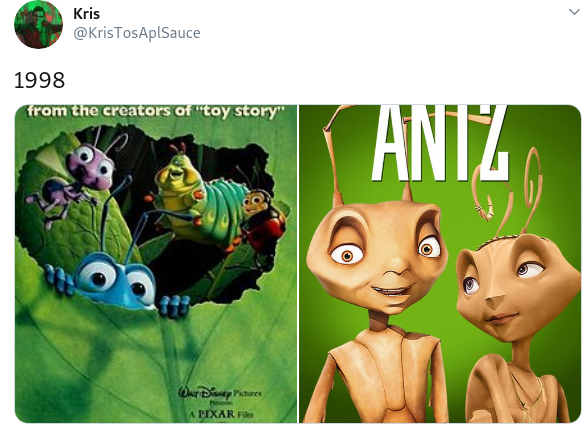
Remember 2014, when The Legend of Hercules came out before The Rock's Hercules flick? I do, I saw both: one was mediocre and one was terrible.
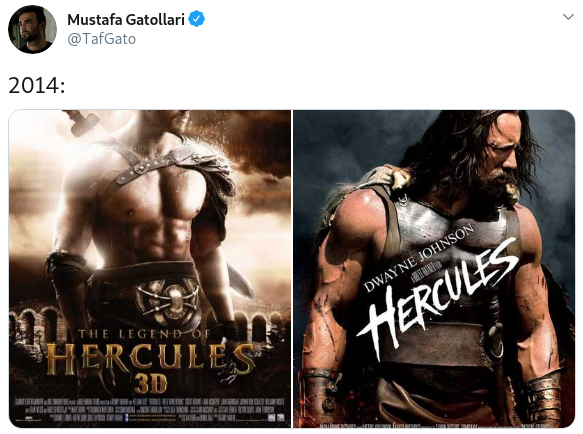
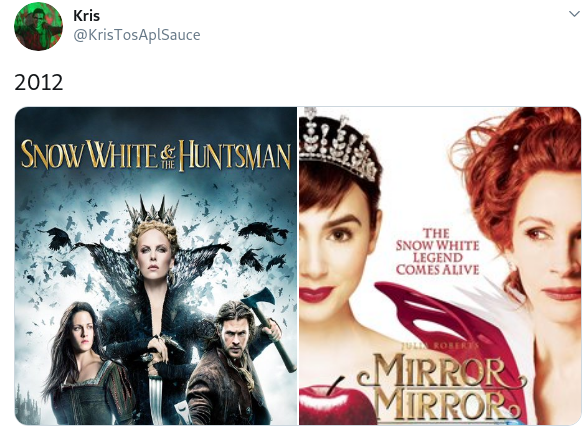
Lillie also hinted at "industry espionage" being a cause of this, and I believe that Twitter user Roxy's explanation for this recurring trend may speak to that a bit. Sometimes, studios will love an idea a writer pitches so much, not not enough to pay the writer for their work, so they write their own script based on the idea the writer presented to them.
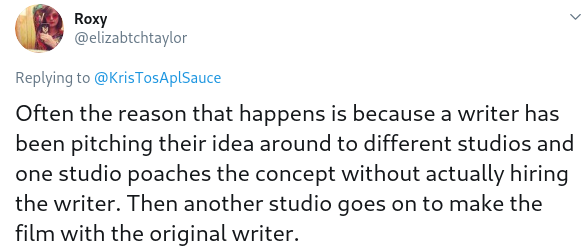
And while you're probably thinking: "Hey, that's stealing!" What are the odds that some writer is going to be able to win a litigation battle with a major production studio? Also, it could just be that said studio believes they could execute the idea better and don't want to deal with the headache of working with a writer who believes in their troublesome "vision" or whatever.
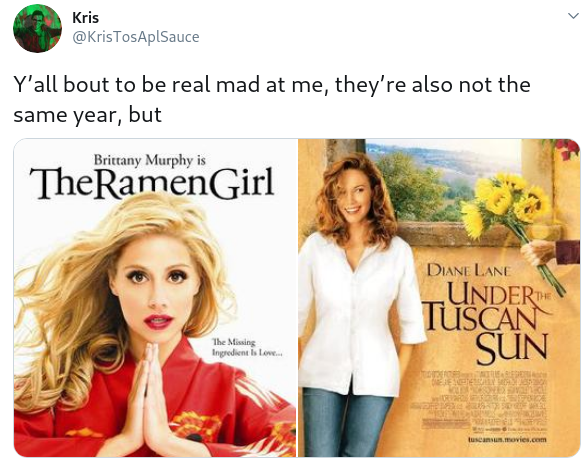
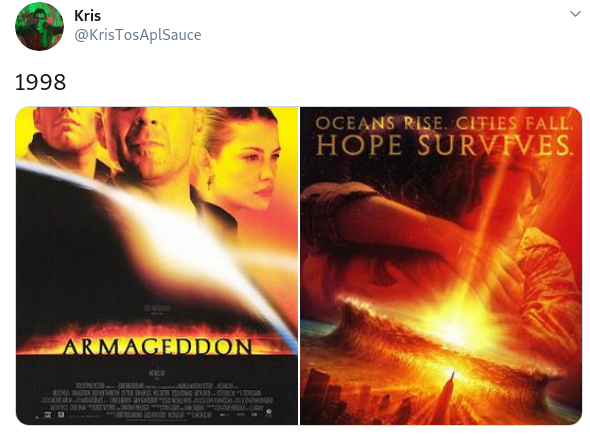
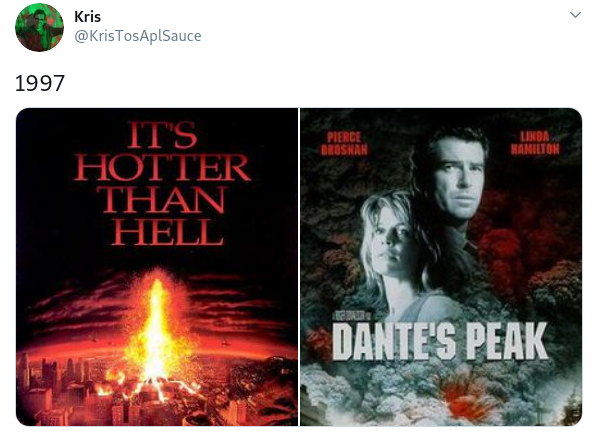
As obvious as this phenomenon is, it doesn't look like it's going to stop anytime soon. Are there any other examples of twin films (and I'm not just talking about cheap imitations) that you can remember off the top of your head? Here are a few extra for you to enjoy.
